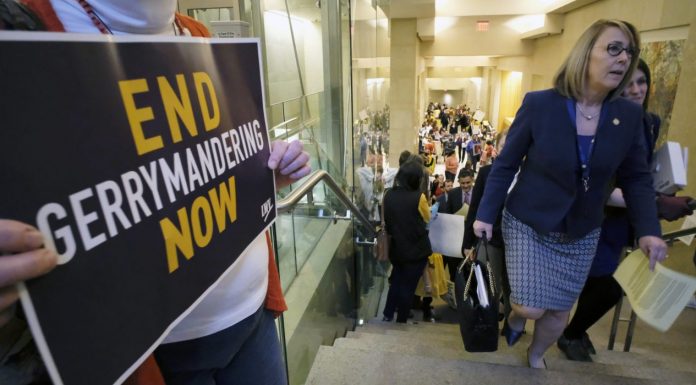(Tyler Arnold, The Center Square) New district lines approved by the Virginia Supreme Court will be favorable to Democrats in the House of Delegates and the state Senate, according to an analysis from the Virginia Public Access Project.
Current district lines already give Democrats an edge over Republicans in a state that has become more blue in recent years. The new lines will increase the number of seats Democrats are likely to get, keep Republicans about the same and reduce the number of tossups.
There will be 38 safe Democratic seats in the new House maps and another 11 seats that will lean Democratic, for a total of 49 likely seats.
There will be 24 safe Republican seats and 17 seats that lean Republican, for a total of 41 likely seats. The remaining 10 seats will be toss up districts.
This is a shift in favor of Democrats. Under the current lines, Democrats only have 30 safe seats, but have 17 seats that lean in their favor, totalling 47 likely seats.
Republicans have 26 safe seats and 15 seats that lean in their favor, which totals 41 likely seats. Although the number of likely Republican seats remained the same, there are currently 12 tossup districts compared to the two in the new maps.
Rather than maintaining the current divide, Democrats received two more likely seats.
In the Senate, results are similar. The new lines will include 16 safe Democratic districts and six districts that lean in the Democrats’ favor, for a total of 22 likely Democratic seats. Republicans will have 11 safe seats and six that lean in their favor. The maps include only one tossup district.
This map is a minor shift in favor of Democrats. The number of safe and leaning Republican districts will remain exactly the same as before. Democrats will pick up one additional safe seat and the number of districts that lean Democratic will remain the same. However, the current maps have one fewer tossup district: down from two to one.
The map proposals were drawn by two experts chosen by the Supreme Court: one was chosen from a list provided by Democratic lawmakers and the other from a list provided by Republican lawmakers.
“Over the past few weeks, we have listened to the voices of dozens of Virginians, read thousands of their comments, and consulted with this Court,” the two map drawers, Bernard Grofman and Sean Trende, said in a jointly written memo to the court.
“We have done our best to incorporate the comments that we received, and we are now pleased to present this Court with the final version of our maps for its review,” they said.
Originally, the maps were meant to be drawn by a bipartisan redistricting commission, but virtually every vote fell along party lines, which prevented the commission from meeting its deadlines and put the court in charge of approving maps.

